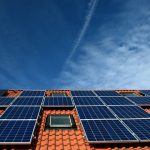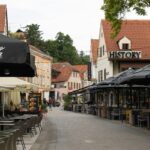February 24, 2020 – Zelena akcija (Friends of the Earth Croatia) and the initiative Ljudi za ljude (Humans for Humans) is helping Croatian citizens living in remote areas of the country, who don’t have access to certain basics we all take for granted, such as electricity.
One of the people who will be provided with the solar power panels is Mara Stanić, a 71-year-old woman, living in a village called Čakale, near Glina, who hasn’t had electricity in her house for the past ten years. Mara explains that her life is difficult without the electricity during the summer, as well as winter, as during the winter she has no way to store food and prevent it from spoiling. During the winter it’s the boredom of the long nights, as well as her difficulty moving on crutches and using the outhouse with nothing more than a flashlight, Marina Kelava writes for h-alter.
That’s why the people trying to help Mara and some of her neighbours started the crowdfunding campaign called “Ray of Sun – Light of Hope“. They hope to get 13.500 Euros, which will allow them to install the solar panels and installations needed to provide electricity for several of the most vulnerable houses. Branka Bakšić Mitić, Glina’s Deputy Mayor and one of the people involved in the “Humans for Humans” initiative explains that it’s five or six people, mostly living alone who haven’t had electricity for close to 20 years. The quarter of their goal has already been funded.
In 2019, in one of the first similar projects, they installed the panels for Ljuba Ostojić, who lived without the electricity for 53 years. According to the official records, there are around five thousand people in over two thousand households all over Croatia without access to the electricity; however, Marija Mileta from the Friends of the Earth Croatia Society says that the number is probably higher than that. Their goal with this action is to prove that solar power is one of the key solutions for both energy poverty and the climate crisis. The systems they plan to install will differ, but will cost around 1500 Euros (without the installation costs). These systems won’t allow for any bigger appliances to be used but will provide the light, radio and charging for the cell phones (needed for emergencies).
A year ago the European Index of Energy Poverty was published for the first time. It showed that in 17 EU countries the number of people living in energy poverty is still significant, and Croatia is one of those 17 countries.









